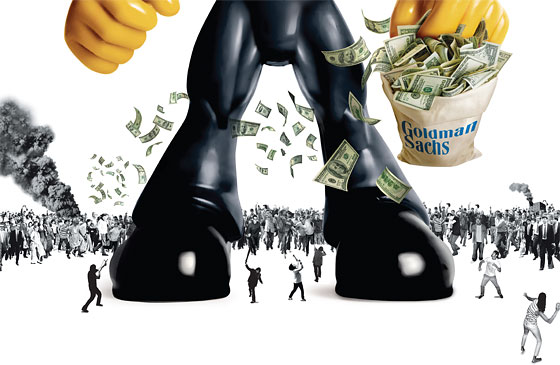
The fall-out from the financial crash continues. Markets and economies may be stabilising but we are now in the midst of a grand discourse and clash of ideas on the role of financial markets. Lord Turner, head of the FSA, the City regulator, has been quoted in a magazine article as saying that some City trading activity is "socially useless" and "efficient market theory" has been found wanting and consideration should be given to a transaction tax called Tobin's tax, after the US economist who first suggested it, to reduce the power of financial markets.
The reaction from the City and also government has been strongly critical but interestingly the reaction from the financial press has been more nuanced and supportive of the debate. This supports my sense that the City has ridden roughshod over the financial media (and society?) for too long and is paying the price. The City has also ignored the requirement in a modern democracy that a major sector needs to participate in the debate of ideas with society, along the lines of Habermas' communicative action with a genuine interest in hearing different perspectives. The City has put forward a very narrow ideology based on jobs and importance to UK plc and the financial crash has led to this being questioned. Somehow one cannot imagine that the industry body, the British Bankers Association, has ever funded research on supporting the rationale of financial markets, but perhaps this now needs to be part of its communications strategy going forward, if it wants to protect the interest of its members.
The French philospher, Michel Foucault, would surely have been interested in this debate. Not only is the accepted "truth" of the primacy of financial markets now being contended but it is the way that the new discourses are being developed. Foucault was interested not only in the "regime of truth" but the processes developing it. The current debate has not come from the left and traditional critics of the City; but this time from the heart of the City establishment - and in Foucauldian terms, this is what gives it such power. In fact the original Prospect article which takes the form of a round table discussion/interview with Lord Turner by leading City analysts and journalists including a recently retired Deputy Governor of the Bank of England, John Grieve. In PR terms it will be interesting to see what discourse strategies are developed by the City establishment in the coming weeks and months to defend its position; certainly it is a particularly interesting challenge for the City's financial PR community to consider.
No doubt the City will "win" the argument in the short and medium term. However, as some media have suggested the most difficult long term blow for the City comes with the comment that it is "socially useless" In a society where corporate social responsibility is part of the framework and language of modern organisations and the way that they sell themselves to future employees - that is indeed a damaging blow.






